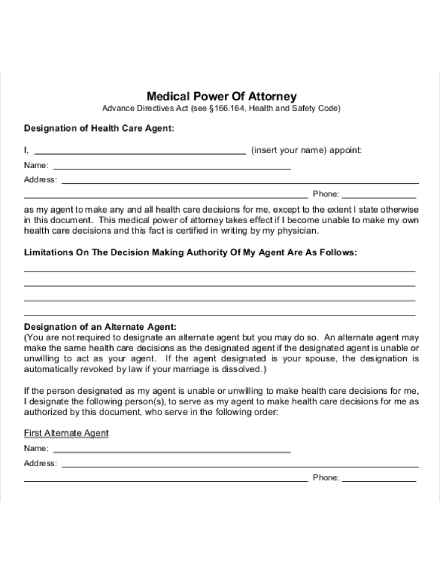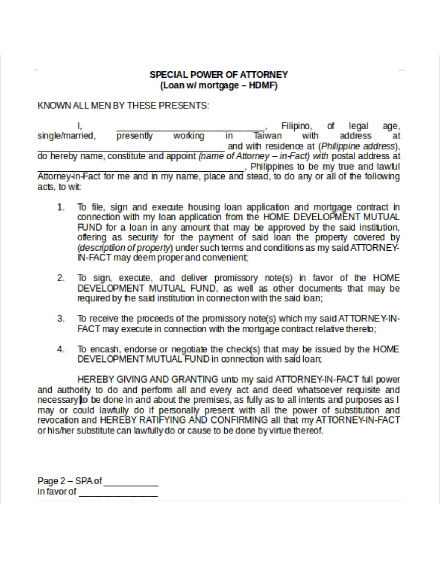15+ Power of Attorney Letter Examples to Download
A Power of Attorney (POA) letter is a legal document that allows you to appoint someone to manage your affairs if you are unable to do so. This could include making financial decisions, handling business transactions, or overseeing medical care. The person you choose is called an agent or attorney-in-fact. Creating a POA is an important step in planning for future uncertainties and ensuring that your matters are handled according to your wishes.
What is Power of Attorney Letter?


Power of Attorney Letter Examples Bundle
Power of Attorney Letter Format
I, [Your Full Name], residing at [Your Address], do hereby appoint [Agent’s Full Name], residing at [Agent’s Address], as my true and lawful attorney-in-fact to act on my behalf for the purposes and to the extent set forth below.
Powers Granted
I grant my attorney-in-fact the full authority to act for me in matters related to [brief description of the powers being granted, such as financial transactions, managing property, legal decisions, etc.].
Effective Date
This Power of Attorney shall become effective on [Effective Date] and will remain in effect until [End Date, or “revoked by me in writing”].
Revocation
This Power of Attorney may be revoked by me at any time by providing written notice to the appointed attorney-in-fact.
Signature
Signed on [Date] at [Location].
Signature: ______________________
Printed Name: [Your Name]
Witness: ______________________
Witness: ______________________
Notary Acknowledgment
[Notary Public Section as required in your jurisdiction]
Power of Attorney Letter Example
I, John Doe, residing at 123 Elm Street, Springfield, IL 62701, do hereby appoint Mary Johnson, residing at 456 Oak Avenue, Springfield, IL 62701, as my true and lawful attorney-in-fact to act on my behalf for the purposes and to the extent set forth below.
I grant my attorney-in-fact the full authority to act for me in matters related to managing my financial accounts, selling my property, and making medical decisions on my behalf if I am unable to do so.
This Power of Attorney shall become effective on January 10, 2025, and will remain in effect until revoked by me in writing.
This Power of Attorney may be revoked by me at any time by providing written notice to the appointed attorney-in-fact.
Signed on January 10, 2025, at Springfield, IL.
Signature: John Doe
Printed Name: John Doe
Witness: James Brown
Witness: Patricia White[Notary Public Section as required in your jurisdiction]
Power of Attorney Letter Examples
Power of Attorney Letter for Child

Power of Attorney Letter for Vehicle

Power of Attorney Letter for Tender

More Examples on Power of Attorney Letter
- Power of Attorney Letter for Bank
- Power of Attorney Letter for Property in India
- Revocation Power of Attorney Letter
- Power of Attorney Letter for Car
- Power of Attorney Letter for Bank Account
- Power of Attorney Letter From Doctor
Power of Attorney Letter Examples
General Power of Attorney Letter
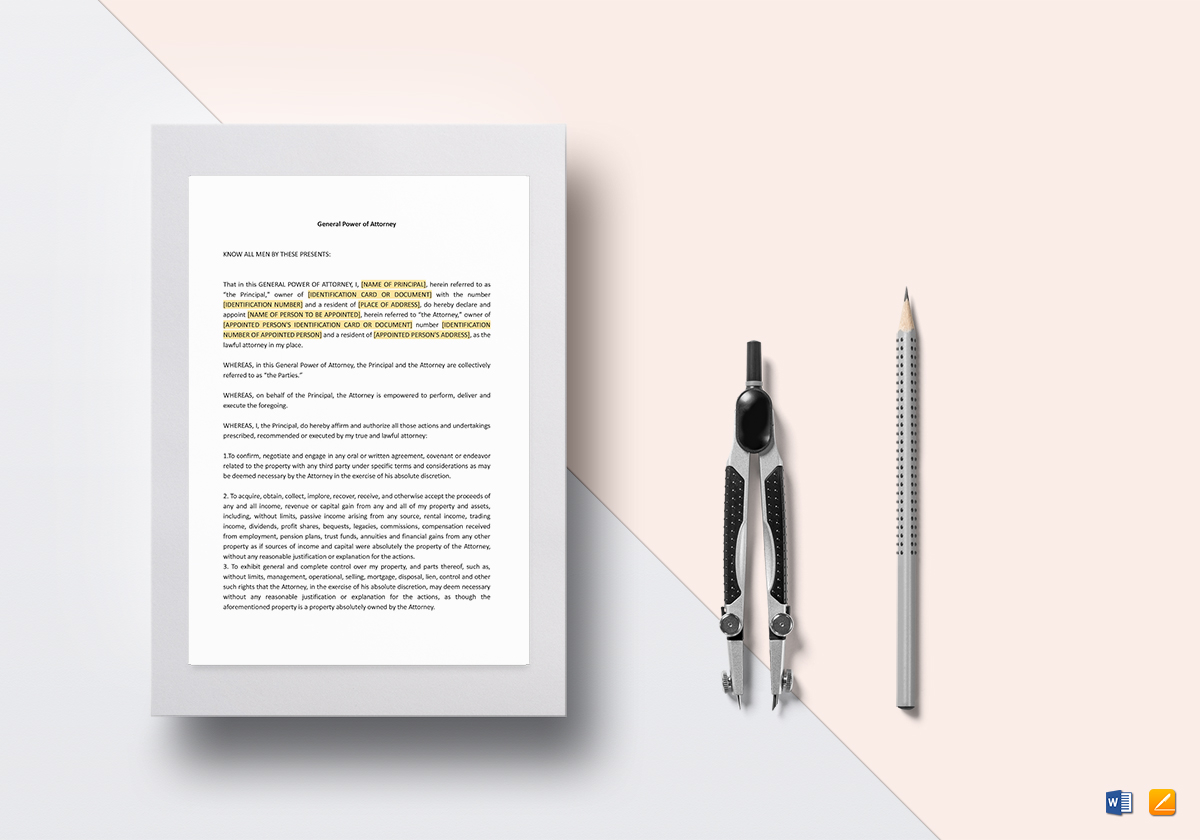
Revocation of Power of Attorney Letter
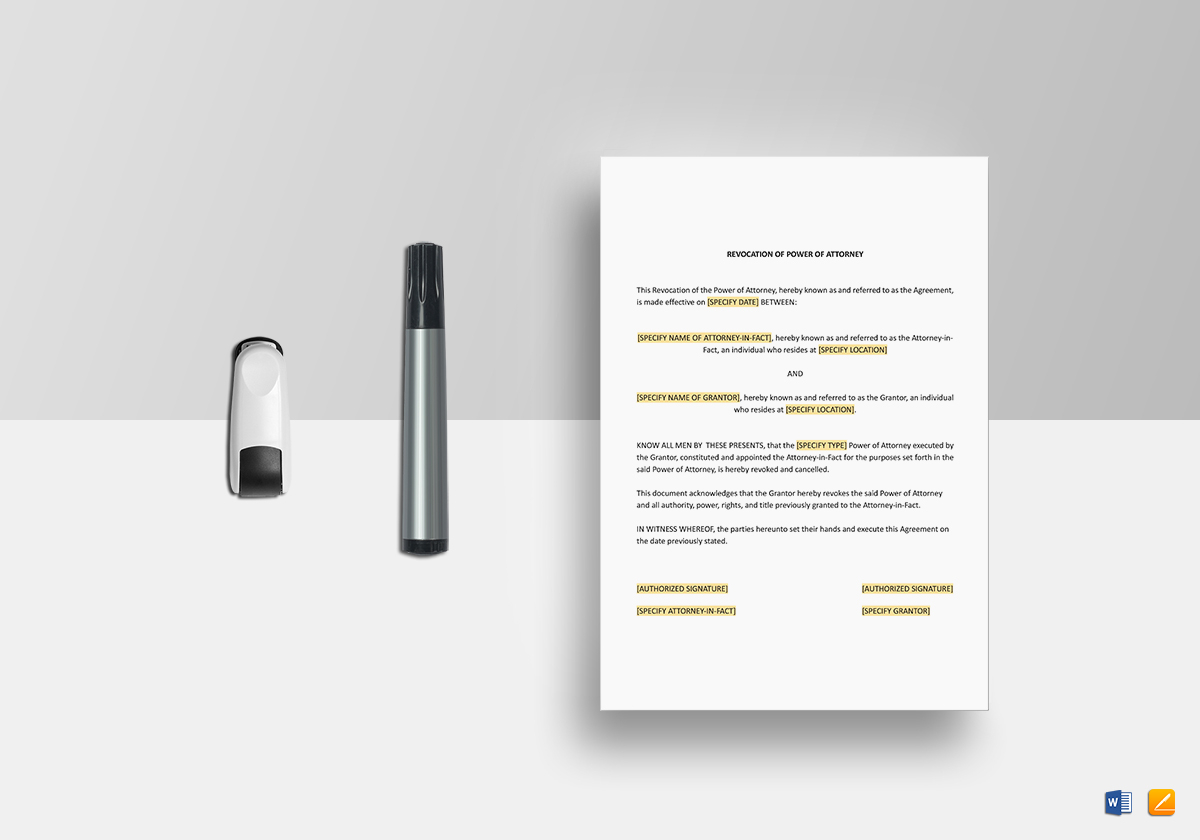
Subscription Form and Power of Attorney Letter
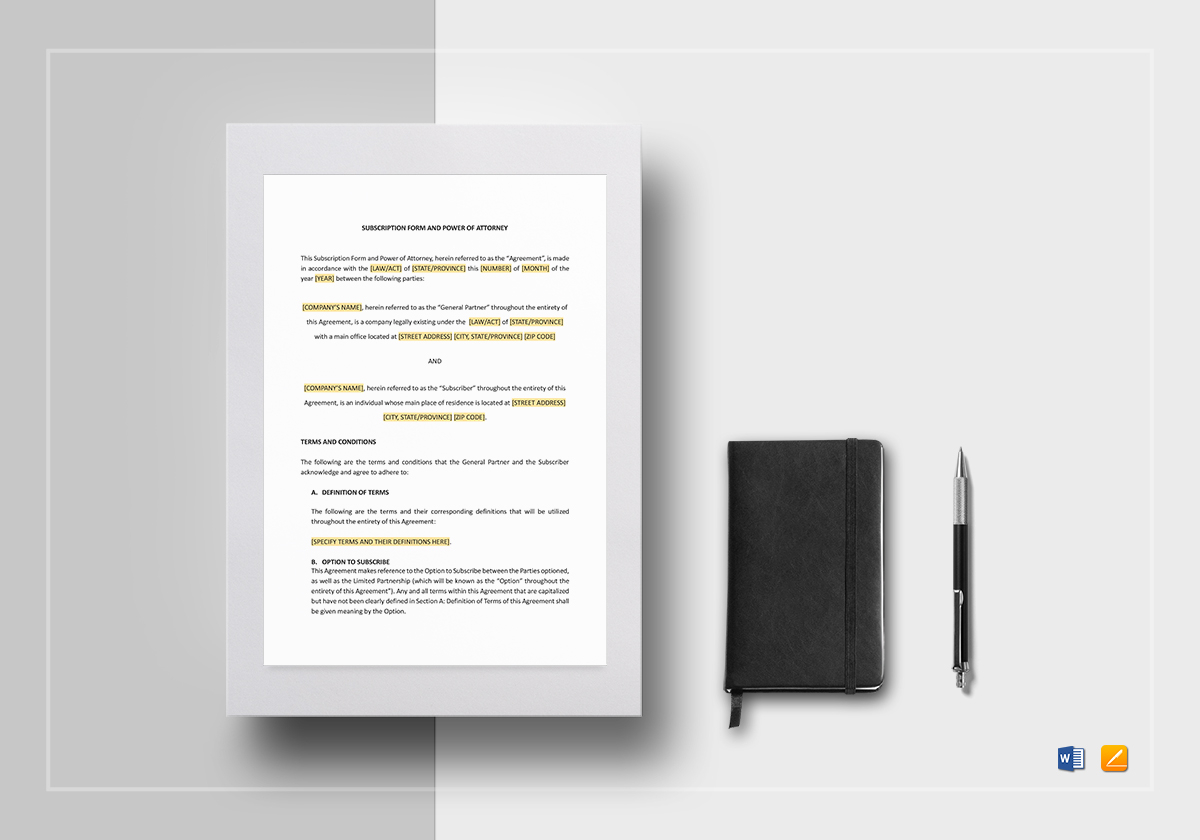
Unlimited Power of Attorney Letter
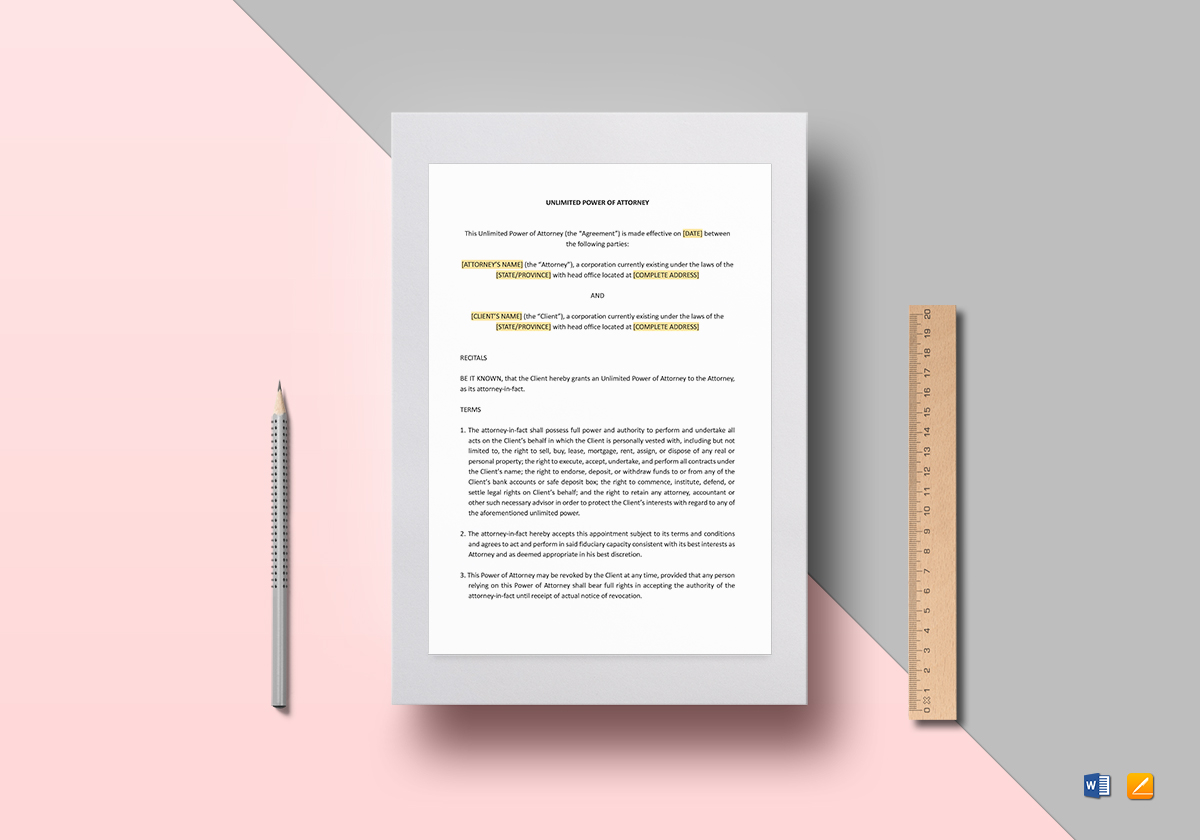
Medical Power of Attorney Letter
Special Case Power of Attorney Letter
How to Write a Power of Attorney Letter

- Identify the Parties
Clearly state the full name, address, and contact details of the person granting the authority (principal) and the person receiving the authority (attorney-in-fact). - Specify the Scope of Authority
Define the specific powers being granted, such as financial, property, medical, or legal matters, to avoid ambiguity. - Include Effective Dates
Mention the start and end date or the conditions under which the Power of Attorney becomes effective and when it terminates. - Add Revocation Details
Include a statement that the principal can revoke the Power of Attorney at any time through a written notice. - Sign and Notarize
Ensure the document is signed by the principal, witnessed by two individuals, and, if required, notarized for legal validity.
FAQs
Who can create a Power of Attorney Letter?
Any adult of sound mind can create it, outlining the powers they wish to delegate.
Is notarization mandatory for a Power of Attorney Letter?
Yes, in most cases, notarization is required to make the document legally valid.
Can a Power of Attorney Letter be revoked?
Yes, the principal can revoke it anytime by providing a written revocation notice.
What details should a Power of Attorney Letter include?
It should include the principal’s and agent’s names, the powers granted, effective dates, and notarization.
Is a Power of Attorney valid indefinitely?
No, it remains valid for the specified duration or until the principal revokes it.



